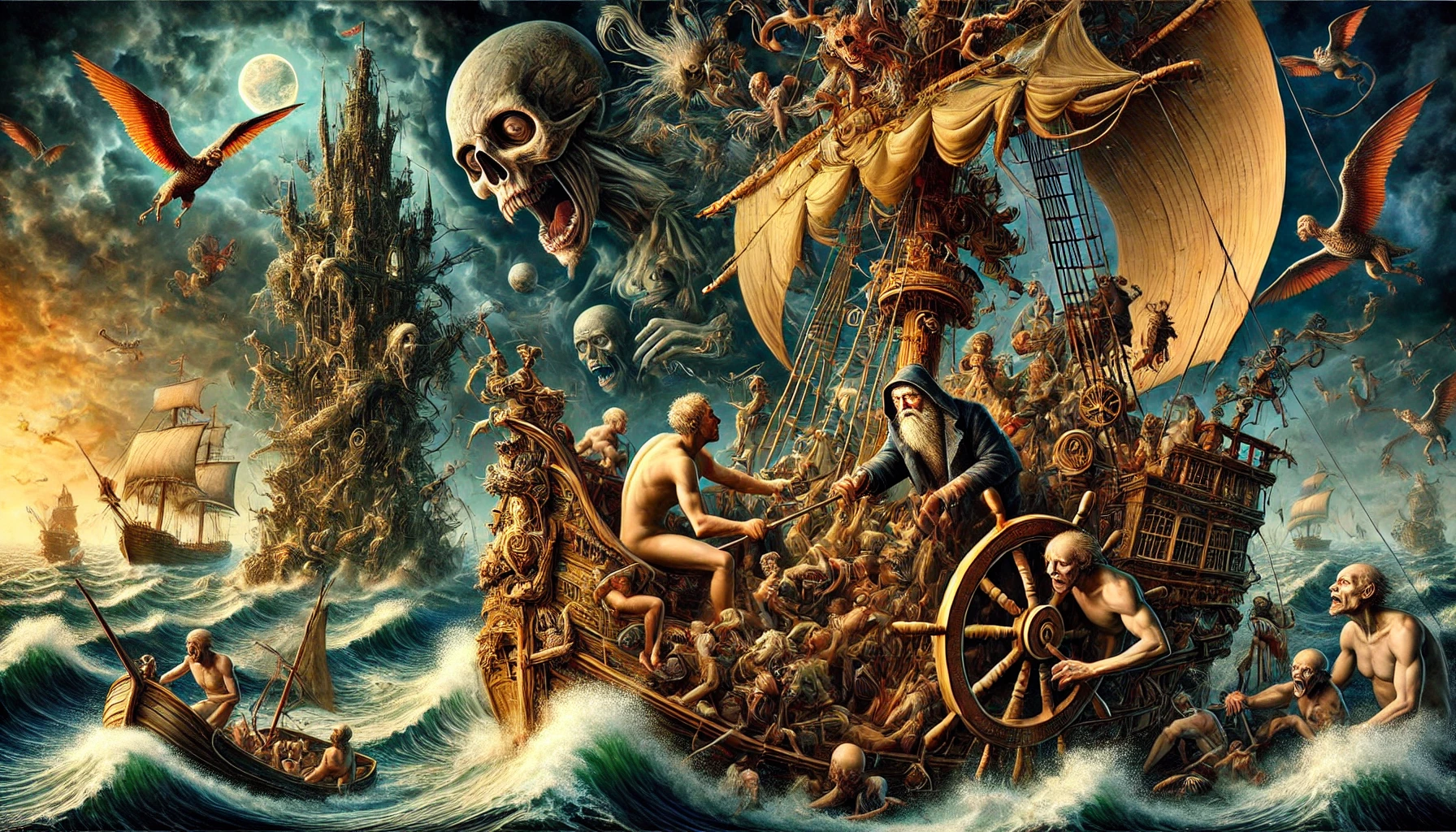
Illustration by DALL·E
Freud: The soul in the realm of suspicion
What Linnæus and Darwin had forced to reconsider was the notion of Man as having been created entirely separately from the “the beast of the earth according to its kind, cattle according to its kind, and everything that creeps on the earth according to its kind” (Genesis 1:24). Man’s special status in relation to the beast is explained by his endowment with a property of divine quality that no other creature shares with him: the soul. The soul is the essence of the self, a decision-making control centre inspired by a moral conscience.
Linnæus and Darwin, together, had exploded the biblical scenario in two successive steps : through a static classification based on likeness with Linnæus, while Darwin had introduced with evolution, a dynamic dimension to the portrait drawn. But neither of the two had anything special to say about the soul.
With Sigmund Freud (1856-1939) it is this time the notion of the soul that came under siege. A constitutive essential property of the soul is that it is of supernatural origin, i.e. not amenable to a reductionist explanation of a scientific nature, which is precisely what Freud intended to propose with what he had labelled his “metapsychology”, the theoretical model he propounded of the psyche.
According to Freud, the decision-making mechanism specific to each individual is partially opaque to the Self with which we identify, because the actual decisions result from a compromise between three forces with divergent objectives, stemming entirely or partly from a source of an unconscious nature that remains in our eyes a ‘black box’, to borrow a concept born in information technology.
The wholly unconscious Id is instinctive in nature, embodying the drives assuring the survival of the individual and the perpetuation of the species. The Id is guided by a pleasure principle demanding immediate gratification. The Superego, partially conscious, partially unconscious, is the authority corresponding to the moral conscience of the soul. It was built in childhood by parents’ and teachers’ education equating with various injunctions imbued with a principle of good and evil, virtue and vice. Freud’s Ego instantiates the deliberative self, the decision-making element of the soul. Both the Ego and the Superego are forces opposing the Id’s commitment to the pleasure principle as being guided by a countering reality principle embodying the demands of the natural world in its harsh physical reality and of the human world in its social reality of necessary compromise between the fulfilment of one’s own desires and those of others. The Ego differs from the soul of yesteryear in that it is in comparison a lame ship’s captain: undoubtedly at the helm but of an unruly craft capable at times of imposing its own impulsive, whimsical, sexually-driven and aggressive nature. Being conflicted between the aims often at odds with its own of the Id and the Superego, the Ego lacks full control. A powerful source of anxiety resides here for a torn Self.
Regardless of any assignment of a supernatural nature in the biblical account, an unmentioned property of the soul is that it is whole: global and flawless. However, in contradistinction to such a view, Freud’s model of the human mind is fragmented into conscious and unconscious elements
With Freud’s representation of drives having an unconscious source and being for some part the force shaping the conscious decisions of the Ego, it is the status of the soul that is this time fundamentally called into question. If human behaviour as a whole has an unconscious determination, the notion of free will becomes blurred, even illusory, whatever our spontaneous feeling of a conscious Ego firmly in the driving seat … with a few hesitations.

Illustration by DALL·E